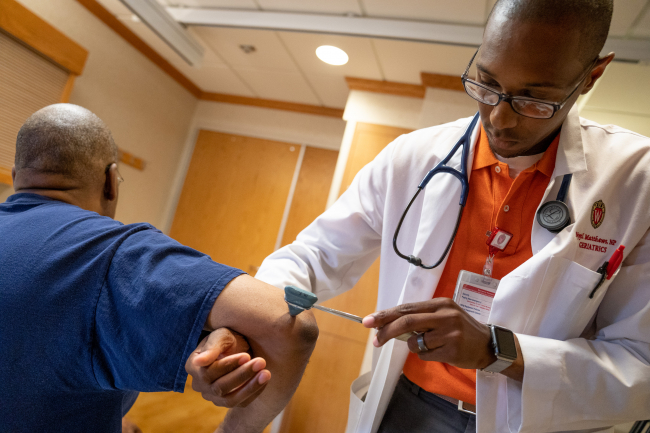
Many things can cause dementia, a decline in memory and thinking skills severe enough to interfere with a person's daily routine. Dementias related to depression, drug interaction, and thyroid problems may be reversible if detected early. Other causes of dementia include strokes, Lewy body dementia, frontotemporal dementia, Huntington's disease, and Parkinson's disease. Alzheimer's disease is the most common cause of dementia. It is important to identify the actual cause in order for the individual the receive proper care.
The individual who may have Alzheimer's disease may be able to maximize the quality of his or her life by receiving an early diagnosis. It may also resolve the anxiety of wondering "What is wrong with me?" An early diagnosis allows more time to plan for the future. Decisions regarding care, living arrangements, financial and legal issues, and other important issues can be addressed.
There is no one diagnostic test that can detect if a person has Alzheimer's disease. The diagnosis is made by reviewing a detailed history on the person and the results of several tests, including a complete physical and neurological examination, a psychiatric assessment, and laboratory tests. Once these tests are completed, a diagnosis of "probable" Alzheimer's disease can be made by process of elimination. However, physicians can be 80 percent to 90 percent certain their diagnosis is accurate.
Memory clinics in the Madison area
Geriatrics services at UW Health offer memory assessment clinics in three locations around the Madison area: East Clinic in Madison, University Station Clinic in Madison, and UW Health Specialty Clinic - Sauk Prairie in Prairie du Sac. Please visit the Geriatrics Locations and Maps page for contact information for these clinics.
Memory clinics throughout Wisconsin
Clinics in the Wisconsin Alzheimer's Institute-Affiliated Dementia Diagnostic Clinic Network differ from other memory clinics in that their staff have received training/observation time and/or guidance from the Wisconsin Alzheimer's Institute (WAI) and the UW Health Memory Assessment Clinic. In addition, clinic network staff attend the WAI's Annual Alzheimer's Disease Update Conference and bi-annual clinic network meetings, which provide up-to-date research and disease management information. Clinics in the network remain autonomous, but follow a set of guidelines.



